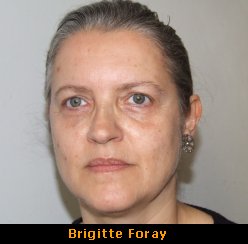| The Park’s
The Other Festival - 2006
- are you there yet? The Museum Theatre, Chennai |
 |
| Dec
6, 2006
"ISMENE
DE YANNIS RITSOS", an adaptation by Nirupama Nityanandan
|
 This
show is dedicated to Bhagirathy Narayanan This
show is dedicated to Bhagirathy Narayanan
ISMENE, the poem, was written by the Greek poet Yannis Ritsos in the ‘sixties, during the historical takeover of power by the Colonels. Ismene is
the name of a woman.
In this text, Ritsos gives speech to Ismene, « the forgotten sister », the only one of the famliy who did not participate in the tragedy but watched it happen. This mature woman, surrounded now by silence and solitude finally finds the words to tell her story. She tells us of her childhood memories, of her famous sister – revealing her in a new light – but also of the very familiar themes of the rôles we play, the attitudes we have when faced with crises and political chaos. Ismene has the clear, unpitying eyes of those who do not hide any more in front of their own responsibilities, or in front of the reality we call life, and in this she offers us a fine opportunity to question ourselves when events demand that we position ourselves. The poem
lasts an hour and will be performed in English.
Directed
by Brigitte Foray
NOTES ON "ISMENE" « If you want to go down deep, you do not need to travel far. » - Ludwig Wittgenstein AN ACTOR AT WORK A woman,
walled in by silence and solitude for years. She is the last survivor of
a royal family whose history has endured till today because it has become
emblematic, part of a Myth.
How to render theatrical a text that is not written as a play? Ritsos could have chosen to write a play, but he prefers to concentrate on one single character and on what she has to say. First and foremost a poet, his need was to establish a direct link between the character and the person who listens, to recreate the intimacy that we might feel when we read a book. To find that closeness. An actor,
An invocation
that relentlessly leads the character towards her own truth. A considerable
effort. For the character and for the actor.
A few branches of the family tree... Ismene:
Antigone:
Oedipus:
Hemon:
Jocasta:
The Sphinx:
Tiresias:
|
 ISMENE
ISMENE